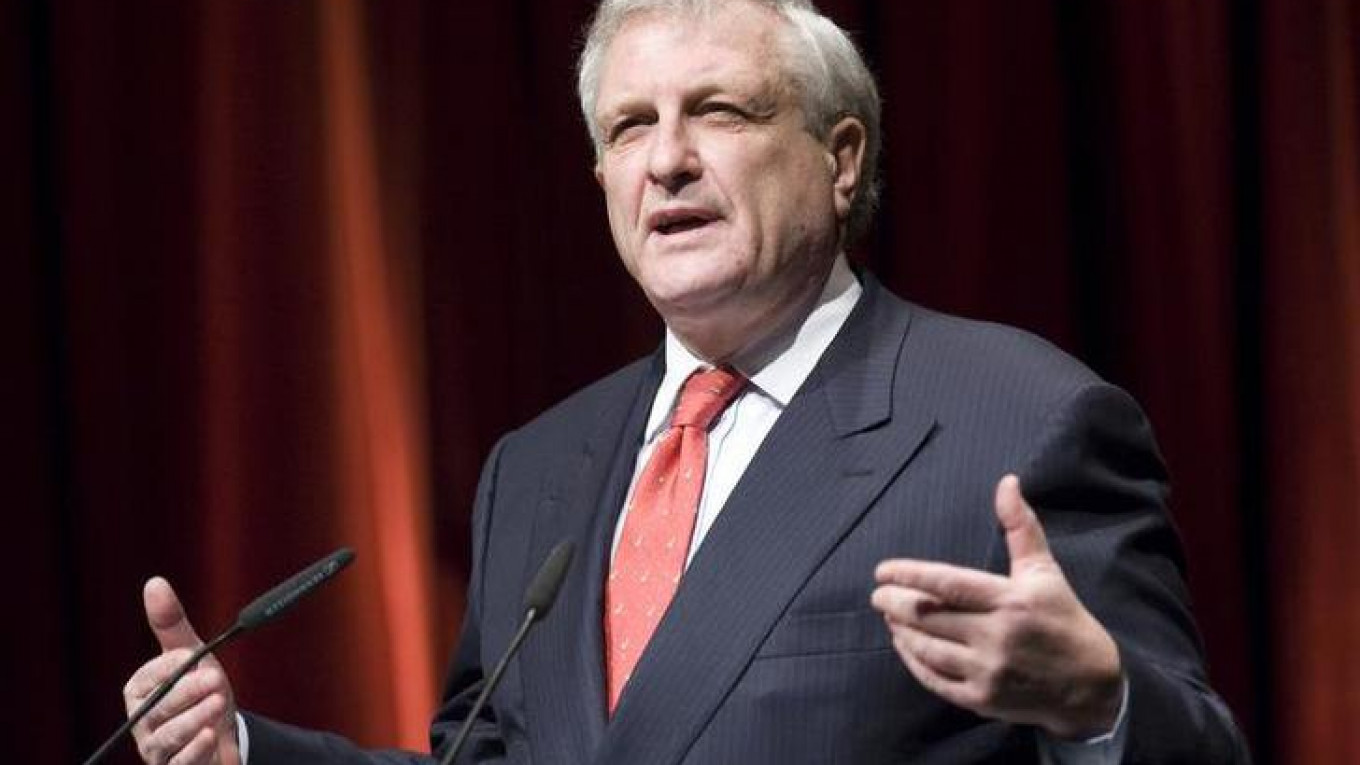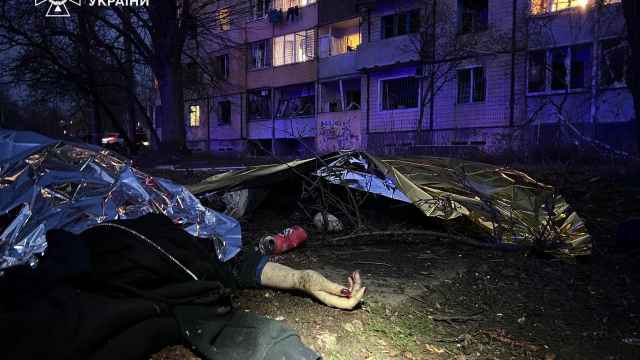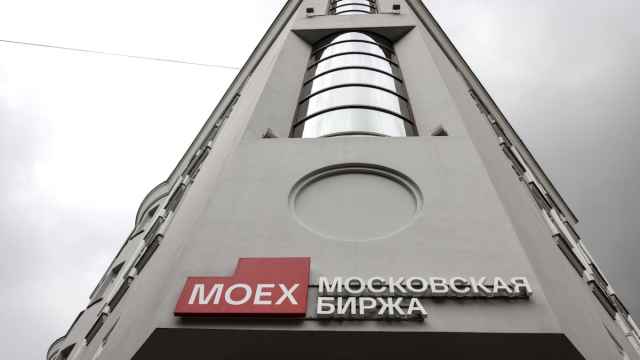The 21st century narrative may not be too different from the one Josef Joffe encountered when he began his career as a political writer for the German newspaper Die Zeit 40 years ago. Today, he is its publisher and editor, as well as a fellow of the Freeman-Spogli Institute for International Studies and the Hoover Institution, both at Stanford University in California, where he is a visiting professor of political science. He has written a number of books on international relations, most recently “The Myth of America’s Decline” (2014). The publisher, academic and author is ideally placed as an observer of both Russian and American politics. He shared his observations with The Moscow Times in the run-up to the U.S.presidential election on November 8.
Change and Continuity in the World
When Joffe began as a writer at Die Zeit in 1976 it was also a presidential election year. America was seen as weak following Vietnam and Watergate, and Gerald Ford was in the White House. There was Brezhnev’s Russia to the East and the U.K. had a year earlier voted in a referendum on EC membership, and the Conservative Party had a woman leader. Terrorism was a global problem – albeit of the IRA, PLO, Red Army Faction kind rather than Islamic State. Would the young Josef from 1976 find much to recognize in the world of 2016?
“I certainly would recognize the basics: airplanes, telephones, railroads, TV – technologies that have been around for a hundred years,” he explains. “Yet young Josef would be amazed by the stuff that was only science fiction forty years ago: cell phones, smart watches, PCs, indeed, the entire digital world that is truly revolutionary. Look, in 1976, we were still using hot lead and linotype machines to put together our newspaper.
“The basics of politics never change, it is all about who gets what when and why? But maps do change; this has been the most unbelievable transformation in my life time. None of us could have dreamed in 1976 that the two Germany’s would turn into one. That the Soviet Union would commit suicide in 1991, leaving behind 15 orphan republics. It was just as hard to imagine the fall of dictators throughout the world, notably those of Egypt, Libya and Tunisia, plus South Korea and Taiwan. China was then a subsistence economy, now it is no.2 in the world.
“In the Middle East, Syria and Iraq exist only on paper today. Israel had faced its worst strategic threat in 1973. Today, Israel is in the best strategic situation ever, enjoying tacit alliances with Egypt, Saudi-Arabia and Jordan while its worst foe in the North, Syria is a state no more. Who would have thought in 1976 that Israel would rank near the U.S. as start-up and high tech culture? The country was still living of oranges and tomatoes a generation ago.
“Finally, terrorism in those days was strictly European: IRA, RAF, Brigade Rosse. Today, it is Muslim – though remember: Intra-Islamic slaughter kills a thousand times more people than Islamic terror does in the West.
“That’s a lot of surprises in a person’s adult life.”
The Myth of American Decline
Joffe called his most recent book “The Myth of American Decline.” America has enjoyed two notable post-war peaks. The first was the post-1945, when the rest of the world was still suffering from the consequences of World War II. The second was the early 90s with the end of the Cold War and the collapse of the U.S.S.R. The U.S. seemed unchallenged as a superpower and was the country the newly-free states of Eastern Europe looked too as an example. In the early 2000s the BRIC nations were hyped as the new economic powerhouses, but Brazil and Russia are in economic trouble, and India’s per-capita income is small by comparison with Europe and North America. So this leaves only China with the world’s second largest economy and growing strategic ambitions. Where does Joffe think the U.S. stands in the 2016 global line-up?
“We have to distinguish between assets and achievements. In terms of assets – military, economic and technological – the U.S is way out on the scale,” he says. “Even more impressive is its cultural clout. The world watches, dresses, dances, listens and eats American. Google describes the world to us. The social media transforming the way we live are Made in USA. Chinese and European parents want their children to go to Harvard and Stanford. America is the epicenter of global innovation.
“Achievement is another matter. In eight years of Obama, the United States has retracted from the world in a historically unprecedented fashion. It is the first great power to practice ‘self-containment.’ It has not been pushed aside by other great powers, as was done to France by Germany in the 19th century, and to Britain by the U.S. in the 20th.
“This turn toward self-demotion I could never have predicted. For all its enormous strengths, the U.S. looks weak today. Putin’s Russia would not have grabbed the Crimea, nor have quasi-annexed the south-east of the Ukraine if the U.S. still had 300,000 troops in Europe instead of 30,000. The Islamic State could not have spread through Iraq and Syria if the U.S. had not vacated Iraq at the end of 2011. China would not strike out as boldly in the Western Pacific if the U.S. had maintained its old navy strength. Russia would not have dared reinsert itself in the Middle East if it had faced the Sixth Fleet in the Mediterranean that, today, consists of a single command ship – not to speak of Obama vacating all his ‘red lines’ in Syria.
“Putin must have looked on in amazement as the U.S. disarmed and retrenched during the Obama era. Putin is no adventurist like Khrushchev. He is an opportunist who has measured the low risks and pushed into the vacuums left behind by Obama. Vladimir brilliantly plays a bad hand. His economy is declining, Russia’s public health situation is worse than in some Third World countries.”
I was in Frankfurt in November and April. Despite this being
the financial capital of Germany and home of the ECB I was struck at how
few places accepted Debit or Credit cards – and it was still very
much a cash only society. The concept of the cashless society has yet to
reach Frankfurt. In the U.S. (and U.K.) this would be unthinkable. Does Joffe rate this as an example of
American exceptionalism – always being one step ahead of the rest of the world
in terms of technological developments and changes?
“I must disappoint you,” he says. “I have been using credit cards in Germany for decades, and the kids even more so. The German banking system did away with checks ages ago; transfers are 100 percent electronic. But your point about American exceptionalism in technology is well taken. As I said earlier, the digital world is being invented in the U.S. Think PayPal, block chain and the replacement of credit cards by smart terminal and pay-by-smartphone – and of course, Google and Apple. Or Netflix and Uber. Invention used to be Europe: the car, pharmaceuticals, plastics, autobahns. The Internet and all that it has spawned are American. And there is no Silicon Valley anywhere else, though so many countries, Russia included, have tried.
“America is the steamroller of modernity – perhaps because it was started as the first modern state that defied tradition and business-as-usual. It also has the world’s best research universities. Ironically, these had been invented in Germany in the 19th.”
In a report by ABC News on October 4, reporter Patrick Reevell asked Muscovites about the two U.S. Presidential candidates – and showed them a photo of each. Of the two dozen people the reporter spoke too, none expressed any preference for Clinton, with most preferring Trump. The network said this may have something to do with the strongly pro-Kremlin news media which depicts Clinton as a warmonger. Joffe claimed in the Financial Times recently that only the Kremlin would cheer a Clinton victory. So how does he explain Donald Trump’s popularity in Russia? And what will a Trump victory mean for relations between the White House and the Kremlin?
“Trump pretends to be Putin’s buddy, but I think the affection is rather one-sided. Men like Putin don’t have friends. But he and Trump do share a narcissist personality. Which Western leader would have bared his torso to photographers? Which Western leader would, like Trump, boast of his sexual exploits? Or brag how smart he is?
“Both men believe in power as the first and last tool of policy. And both are authoritarians who do not respect the rule or law. So they are brothers-in-spirit. But both are highly competitive and consumed by their own vanity. Such characters will soon clash. So do not believe in Russo-American friendship if Trump were elected.”
Proxy Wars on Land and in the Air Waves
In Syria, Russia and the U.S. find themselves on opposing sides. The U.S. and U.K. have accused Russia of war crimes with air strikes on civilian targets. The British Foreign Secretary Boris Johnson said at the Conservative Party Conference on October 2: “The complicity of the Russians in committing what are patently war crimes – bombing hospitals when they know they are hospitals and nothing but hospitals – is making it impossible for peace negotiations to begin”.
Does Joffe think Syria a latter-day Cuban Missile Crisis?
“No way. Remember what the Cuban crisis was all about. Khrushchev committed the ultimate provokatsiya when he installed Soviet nuclear missiles 90 miles from the U.S. coast – and then in a place where the U.S. enjoyed vast conventional superiority. He did not measure the correlation of forces, and so he was forced to capitulate.
“In Syria, by contrast, Russia has the upper hand, and the U.S. knows it. So the U.S. will tread very lightly. It won’t even decimate the Syrian air force because of the high risk of hitting Russian planes, too. Just because accidents will always happen, both sides will walk on eggshells. But being in place, and with the stronger forces, Russia will win this bout, at least on points, unless the next president goes into massive rearmament and naval deployment in the Mediterranean. The “reset” is history, and the mood in America has turned sour against Russia.”
The big difference between now and then (1962) is that Russia is no longer a military threat to the U.S. and NATO. Their military expenditure is a tenth of NATO’s. There are two striking examples of what the new threat is: the breaching of the Democratic Party by hackers who may or may not have been backed by Russian intelligence. Then there was another report on ABC News (September 29) which said that hackers working on behalf of the Russian government were suspected of attempting to hack more than 20 state election systems.
Is the new Cold War is really the Cyber Cold War?
“The ‘New Cold War’ is the ‘Cool War.’ It is being fought with sanctions, special forces, surrogate forces and cyber weapons, not by deploying armored divisions. I think that the U.S. will soon conduct cyber strikes against Russia, just to show off its digital superiority. It will beef up its forces along the eastern frontier of NATO. It will reverse disarmament in order to demonstration new resolve. It will use asymmetries in its favor, notably by isolating Russia financially and economically. Where the U.S. is weak is in the propaganda war. It is hard to imagine the U.S. deploying armies of trolls and hackers to push back the massive agitprop offensive of the Kremlin. Democracies are not good at this game. How, in a free society, would the state recruit civilians for such clandestine warfare?”
Tony Brenton, a former British ambassador to Moscow said in a BBC Radio interview on October 5 that the ordinary Russian citizen has no real enthusiasm for Putin, but there is no alternative. He stated Putin’s foreign policy is to make Russia feared and respected in much as it was during the days of the U.S.S.R. He also observed that what has hit the Russian economy as much as the sanctions has been a collapse in the oil price. Does Joffe think this is an accurate assessment of the current situation of the state of modern Russia?
“I think Russia is in a terrible position in this modern world. It has excluded itself from capital markets and free interchange. Look how many Chinese are studying in the U.S. – and how few Russians. Where is innovation taking place in Russia, outside the military? Look how much the Crimea is costing Moscow. Yes, Russia is striking fear into Western hearts, and nationalism is substituting for prosperity and welfare. But you can’t eat nationalism, let alone profit from economic and technological isolationism. Russia is suffering from a massive brain drain, not to speak of capital flight. The Chinese are much smarter, sending students abroad, engaging in the WTO free trade system, attracting capital and importing or stealing technology. They don’t provoke; they play a subtle game of Go.
“Geopolitically, Russia is on a roll these days. But in all other realms – economic growth, innovation, public health, birth rates – Russia is a basket case, a third-world country with nuclear missiles. And who would want to be friends with Iran or Syria’s Assad? As so often in its history – with the exception of Peter the Great – Russia is missing the train to modernity. But Putin is having a lot of fun.”
A Message from The Moscow Times:
Dear readers,
We are facing unprecedented challenges. Russia's Prosecutor General's Office has designated The Moscow Times as an "undesirable" organization, criminalizing our work and putting our staff at risk of prosecution. This follows our earlier unjust labeling as a "foreign agent."
These actions are direct attempts to silence independent journalism in Russia. The authorities claim our work "discredits the decisions of the Russian leadership." We see things differently: we strive to provide accurate, unbiased reporting on Russia.
We, the journalists of The Moscow Times, refuse to be silenced. But to continue our work, we need your help.
Your support, no matter how small, makes a world of difference. If you can, please support us monthly starting from just $2. It's quick to set up, and every contribution makes a significant impact.
By supporting The Moscow Times, you're defending open, independent journalism in the face of repression. Thank you for standing with us.
Remind me later.






